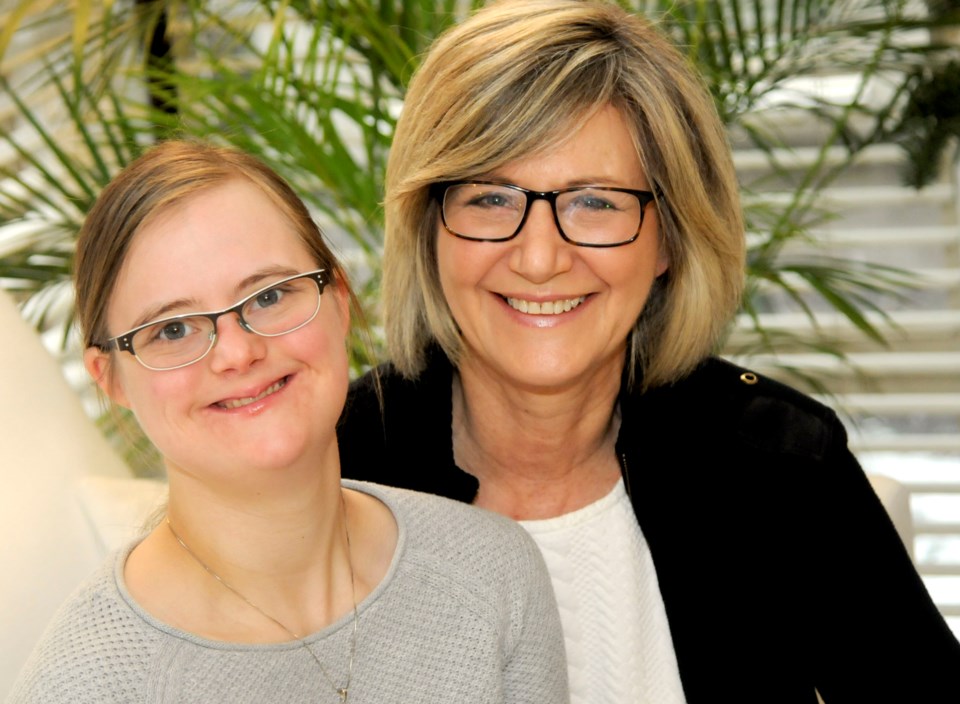It’s time to get people with disabilities off the sidelines and into the workforce.
That’s the focus of the North Shore Disability Resource Centre’s new Diversability Employment Project, a campaign intended to assuage the region’s labour shortage while lowering the 50 per cent unemployment rate for adults with disabilities.
Negative stigma, “attitudinal barriers” and misinformation all contribute to the problem, according to Ross MacMillan, public relations manager with the resource centre. The initiative is intended to work with employers, elected officials and job coaches, MacMillan said.
To foot the bill, the disability resource centre is raising money with a GoFundMe campaign called Empower People with Disabilities. They’re hoping to raise $45,000 to be spent on resource materials, hiring inclusive employment specialists, educational materials and meeting costs.
Meeting costs are “not a very sexy thing,” MacMillan acknowledged. But the reality is getting the right people in a room costs money and job coaches can be indispensable, he says.
Having a job coach was a nice help, says Jodi Klukas.
Klukas, who has Down syndrome, stocks shelves two days a week at a West Vancouver grocery store.
“They come and help when you need it,” she said of the job coaches.
A coach was on hand during her first few days on the job until she got the hang of things.
Having a job has given Jodi more confidence and a sense of purpose, said Wendy Hausmann, Jodi’s mother. “It’s more than just a paycheque – which is also nice – it’s just a rounded life,” she says.
Once hired, people with disabilities tend to work as hard as they can, Klukas said. “I think, in the end, they do a really good job,” she said.
People with disabilities need to find work to avoid a cycle of perpetual poverty, said resource centre director Liz Barnett. “In order to have people live full lives, they need economic power.”
But the initiative is meant to benefit employers as well as potential employees, according to Barnett.
Companies have a chance to raise their status in the community because they’re employing sons, daughters and friends of potential customers.
“Those family members and those people with disabilities then become consumers,” she says. “If you know a friend is working in a restaurant, you’re probably going to wander over there.”
Employers can be reticent to hire people with disabilities, said Gillian Burns, a resource centre employee who helps adults with disabilities access government benefits and get jobs.
“(Employers) overlook someone that has a disability because they think it’s going to be too much work,” she said. But there’s a wide range of people with disabilities, Burns said, noting that some adults find themselves sifting through employment listings after an illness in their 40s or 50s.
And while some people are buoyed by friends and families, there are many others who need a boost.
“We’re all part of the same community,” she said. “We’re all neighbours and family members and friends.”
Pending funding, the resource centre is hoping to hold meetings with North Shore employers in April 2018.
The campaign has been in the works for a while but the centre opted to use GoFundMe when the project wasn’t picked for a government grant.
With high housing prices and low vacancy rates creating barriers for many workers, it’s imperative the community takes action, said MacMillan.
“It’s only going to get worse if we don’t figure out a way to actually use some of the people that already live on the North Shore,” he said of the ongoing labour shortage.
It can be difficult to raise money for adults with disabilities, he noted.
“People don’t want to stare, people don’t want to look away,” he said. “There’s still shame around disability.”
But the majority of people with disabilities don’t want a fuss, they want a chance, he said.



